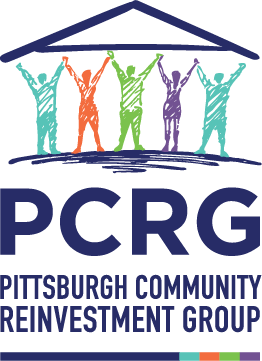As we move into the second half of 2025, PCRG is proud to share our progress — and the challenges ahead — in advancing the goals outlined in our 2025 Policy Agenda. Released in January, this year’s agenda focuses on affordable housing, equitable land use, small business reinvestment and transportation justice. At every level of government, we are engaging policy makers, supporting our members, and pushing for community-centered solutions amid mounting uncertainty at the federal and state levels.
Affordable, Attainable and Quality Housing
One of our key legislative priorities — House Bill 1650, a bipartisan home preservation bill — passed the Pennsylvania House of Representatives. The bill would provide urgently needed funding for home repairs, helping to stabilize aging housing stock and prevent displacement. A companion bill in the Senate, backed by Senators Nikil Saval and David Argall, aligns with Gov. Josh Shapiro’s call for a $50 million investment in housing preservation.
At the local level, we’ve long supported zoning reform efforts aligned with Pittsburgh’s Housing Needs Assessment. These include changes to allow accessory dwelling units (ADUs), reduce parking minimums, promote citywide Inclusionary Zoning (IZ), and enable transit-oriented development. While the full reform package has yet to be adopted, City Council’s recent reduction in minimum lot sizes marks an important step toward more flexible and inclusive development. These reforms aim to align land use with housing needs, modernize outdated zoning codes, and support more affordable, equitable growth.
Financial Justice: CRA, CDFI Fund and the CFPB
As threats to core financial justice escalate, PCRG continues to defend proven solutions:
We advocate for a strong Community Reinvestment Act (CRA) as regulators revisit key rules. The CRA remains a cornerstone of equitable lending and investment in underserved communities.
We are fighting to restore funding to the Community Development Financial Institutions (CDFI) Fund, which was eliminated from the proposed federal budget. The fund supports small, community-based lenders vital to housing development and small business growth.
We are pushing back against efforts to weaken the Consumer Financial Protection Bureau (CFPB), especially Section 1071’s requirements for small business loan reporting. The CFPB plays a vital role in promoting fair lending and holding financial institutions accountable.
Federal Housing Policy: Bright Sports and Setbacks
The Senate’s latest tax proposal includes a permanent expansion of the Low-Income Housing Tax Credit (LIHTC)— a major win for affordable housing. However, the bill also proposes cuts to Medicaid and excludes the Neighborhood Homes Investment Act (NHIA), which would encourage private investment in homeownership within disinvested communities.
PCRG will continue to push for the NHIA’s inclusion while also defending critical safety net programs that strengthen our neighborhoods.
Land Recycling for Stronger Communities
We are advocating for expanded land recycling tools — including increased capacity for the Pittsburgh Land Bank and statewide policy reforms for more transparency and to streamline the acquisition and reuse of vacant and abandoned properties.
These strategies are essential for restoring neighborhoods, creating community wealth, and returning land to productive, tax-generating use.
Small Business Reinvestment
PCRG supports policies that expand access to capital for small and minority-owned businesses, especially through increased lending transparency.
We continue to defend Section 1071 of the Dodd-Frank Act, which is under threat in Congress. Section 1071 requires data reporting on small business lending, holding financial institutions accountable, and helping to close racial wealth gaps.
Fighting for Transit Equity
PCRG remains a vocal advocate for sustainable, long-term public transit funding.
Pittsburgh Regional Transit and other regional systems face major funding gaps. We’re calling for new revenue sources, stronger state investment, and transit-oriented development to keep transit reliable and accessible for all.
Building Power Through Partnerships
A core part of PCRG’s advocacy strategy is working with local and national partners to elevate issues, coordinate campaigns, and drive collective action.
In the first half of 2025, we’ve deepened collaborations with:
Pittsburghers for Public Transit (PPT) (Pittsburghers for Public Transit - Pittsburghers for Public Transit) and the Housing Justice Table (Housing – Pittsburgh United) to push for equitable zoning and transit reform, ensuring community voices are at the center of policymaking.
The Homeownership Alliance (Homeownership Alliance - NCST), a national coalition championing policies like the NHIA and expanded down payment assistance programs.
We’re also urging our banking partners to launch special credit purpose programs and offer competitive down payment assistance, aimed at closing racial and economic homeownership gaps. These collaborations ensure PCRG’s policy priorities are amplified, and community-driven at every level.
Looking Ahead
We entered 2025 bracing for a difficult federal landscape — and that prediction has held true. With the elimination of the CDFI Fund, cuts to the U.S. Department of Housing and Urban Development (HUD), and attacks on the CFPB and CRA, our advocacy is more critical than ever.
Stay Engaged
Contact your state senator in support of the Housing Preservation Program (HB 1650)
Urge Congress to pass the bipartisan Neighborhood Homes Investment Act
Join a Policy Power Hour or PCRG Working Group to stay connected and involved. Questions? Contact PCRG Director of Policy Chris Rosselot at crosselot@pcrg.org.

